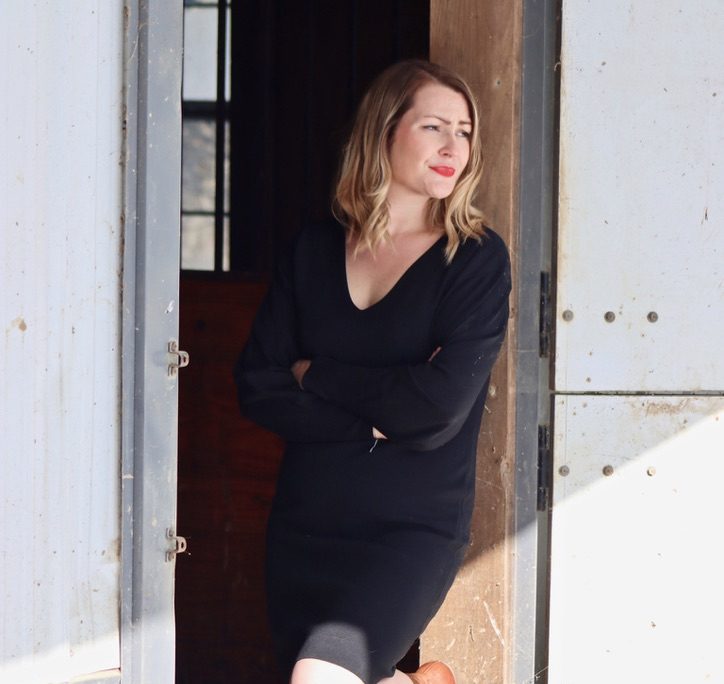When you work in theatre, a common phrase is “go dark.” Leading up to a production, there are endless hours of work put in from the actors, tech crew, and directors. In order to give it their all, the entire cast and crew does not rehearse on the days leading up to the performance. That is “going dark.” I was in high school theatre when I learned this practice. My sister is a production manager at a private college and they still “go dark.” I think this is a fitting introduction to what I have planned for the next chapter in my life.
Always Learning in Life
Let’s back up a bit. I want to give you a full picture of why I so dearly need rest to prepare for the next act of my life. We can rewind to, dare I say, high school? You see, this is an important chapter in my story.
I learned of autism for the first time in high school. I was in a sociology class and my teacher was introducing us to individuals with autism who are savants. This was the first time I heard a tiny inner nagging. “Autism” the nagging said, “pay attention.”
Later that year, a co-worker at Subway (I have held a lot of jobs) began talking about home-based therapy for children with autism. The inner nagging pinged me again. I had never met a person with autism and there was no clear sign in my life that I was going to work within the autism field, yet something was telling me to pay attention.
At the time I was actively working on a theatre career (Fun Fact: we won state twice during my time in leading roles!) and dragging my family to California. I was also still deeply suffering from abuse at home and digging for a way out. My digging looked like the wrong crowd, not respecting myself, and some partying. Yet still, I remembered the nagging more than anything.
Focusing on Childhood Education
Fast forward to my early 20’s. I had given up my dream of Hollywood and was diving deep into early childhood education. I wanted to learn how the environment shaped us and how to give every child a chance to realize their own potential. I did an honors thesis on chronic absenteeism and related factors, studying the impact of race, gender, social-economic status, and home environment. I also worked in a preschool at the Ohio State University.
At the time, autism was not being appropriately diagnosed and there were clearly children in my room who had autism but no services. My dear friend Mistique Henry (you guessed it, Henry’s namesake!) asked me if I wanted to work in-home doing therapy for a child with autism. The nagging feeling was there again. It told me to go and to learn. It was here that I learned about Applied Behavior Analysis and made the choice to come to Chicago to get my master’s degree.
In 2009, directly following college graduation, I packed up my puppy, a bad boyfriend (no joke), and the rest of my life. We moved to Chicago. I dove into the world of autism, behavior analysis and the discrepancy of services in Illinois for the next two years of my life. I also dumped that bad boyfriend.
I worked on the Illinois Crisis Prevention Network under a wonderful mentor Kim Shontz during research for my master’s degree. She’s an amazing leader and I’m lucky enough that her son, Ken Shontz, now serves as our Clinical Supervisor for Adult Services.
On the Crisis Team, I worked with individuals with disabilities who engaged in dangerous levels of problem behaviors. Ages of the individuals ran from early childhood to the elderly. I had a 100% success rate with my clients by using ABA, as it was designed. I had more luck with some amazing BCBA supervisors (Kristin, Alex, & Yours!!) who guided me.
The science during my master’s studies was all I ever wanted. It let me use my knowledge that each child is a unique gift. I was there to find out what wasn’t working in their lives. This “not working” is a learning style and ABA breaks down the learning barriers so that the person with disabilities no longer needs to use problematic behaviors to get their needs met. Turns out, it’s a missing skill. Look at our nation today and I’ll tell you loud and clear, “there’s a missing skill.”
The Crisis Team & Anger
I eventually found myself on a Crisis Team and found out why I kept getting nagging thoughts and feelings about autism. Simple, right? Wrong.
Once I found out why problem behaviors occur and how to change them, I found a new problem to solve; access to therapy. In Illinois, children with autism and adults with disabilities were (are still are) discriminated against based on their funding source. ABA companies back then (and some still today) look for high fee schedules from private insurance. If you’re a mama with a child on Medicaid you’re not getting ABA service. It was horrible. So, I got pissed.
Remember I told you a few weeks ago that anger is a messenger. With this anger I founded Instructional ABA Consultants. We are standing strong 8 years later and have NEVER turned a child or patient away based on funding sources. While we still can’t bill Medicaid (Illinois needs to make some noise here, we’re so close!) we accept Waivers for Medicaid families, do financial hardship cases, and have created grants for families who can’t afford insurance.
And you know what? On a Proforma scale we are at the top 90% of profitable companies in our industry. Want to know why? We’re treating our clients and employees with respect and care. Everyone is equal at IABA.
I’m blessed with a leadership team that supports my vision, therapists who provide top of the line ABA therapy, children slathered in high quality ABA and sprinkled with love, and that nagging is still calling to me.
I wrote to you last week that my nagging is taking me home to Ohio on our (horse) farm. I also told you I’m getting ready to light the world on fire and get in some good, necessary trouble. You see, I got pissed again.
The Coming Storm
Let’s fast forward to today. You can see that I’ve been working my ass off for well over a decade, following the guidance to support people with autism. Every hard-working minute is well worth it. And yet, my professional nagging tells me this, “you aren’t done until to have a disability is not to be disadvantaged, and to do this you cannot do this alone, you need more support.”
During COVID, I took those nagging messages the wrong way. I thought I needed investors to help grow my company larger to meet this mission. I went through talks and a high-ticket price was dangled with a clear message, “sell out, let us water down treatment, and pump out clinics to create investor returns.”
My thoughts about those type of offers: Fuck no (told you, I’d get there). In “Untamed,” Glennon writes a passage that I believe has the answer to the dysfunction of society. Glennon tells us for every disadvantaged group you can follow the profit down the stream to find out who is making money. It’s sickening and it’s true. Money is driving our society into a future I want no part of.
So, I’m rewriting my narrative and, in turn, autism’s narrative. I’m going to go toe to toe with Wall Street, to tell them, “not on the backs of children with autism.” The money that insurance provides for ABA therapy should be going to the children to improve the companies that serve them. Period. If you bought a yacht with ABA money, I truly hope you sell it and open a school for children with autism in Africa, South America, Bulgaria—I don’t care, just give it back.
Of course, you should be paid for your good work if you own a company. No issues there and I think more women need to hear this is OK. What’s not OK is to dilute treatment to create as many billable hours as possible for the sake of higher profit margins. You can fully give your company what it needs to thrive and pay yourself if you work hard and are true to your goals. Promise.
In order to follow my nagging and anger, I discovered what I must do. I’m building a future where BCBA owned ABA companies can outperform any corporate structure. A system where we can band together to change the narrative for children with autism and adults with disabilities. During this journey I’m going to meet thousands of people who want to change the narrative for their little piece of the world.
What ignites your inner fire? What injustices do you see every day? What is your story telling you?
I’m going dark for two weeks. After that it’s lights, camera, action. Baby, I’m going to build a brand-new world.
Xoxo,
Jessie


